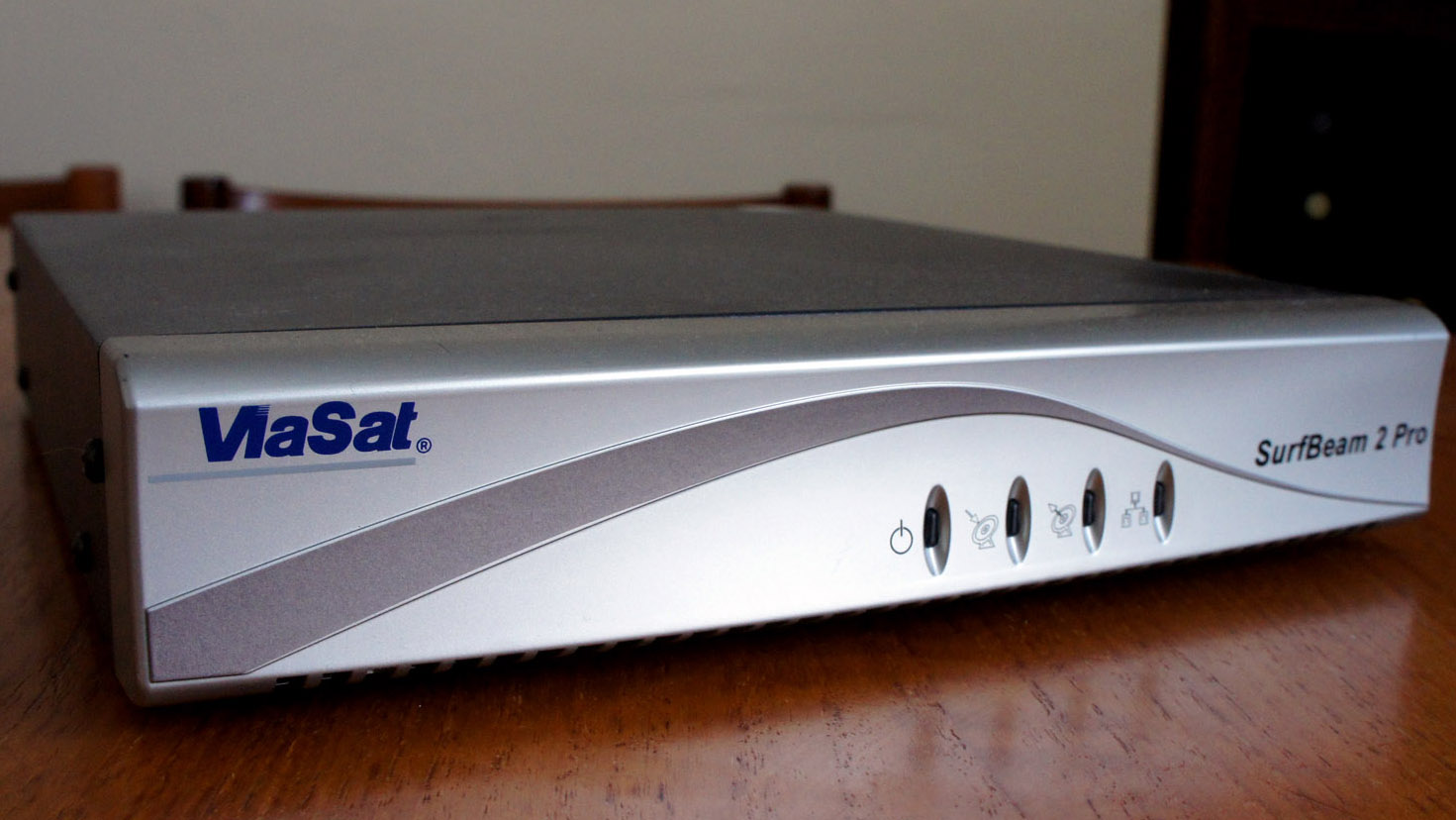What you need to know about satellite broadband
We take a closer look at broadband in orbit
Sign up for breaking news, reviews, opinion, top tech deals, and more.
You are now subscribed
Your newsletter sign-up was successful
To gain an insight into how satellite broadband could be a solution to slow connections to the internet, TechRadar Pro spoke with Andrew Ferguson, editor at Thinkbroadband.com.
TechRadar Pro: Does satellite broadband really offers a practical alternative to terrestrial broadband for domestic and business users?
Andrew Ferguson: "How practical an alternative it will be depends on what you want to do with your broadband connection. For email and basic web browsing and some video streaming it is perfectly good.
"Where it can become problematic is as websites continue to become more interactive, with lots of small constant data requests to update areas on a page, and if these small updates are in response to user interaction the latency will give the overall effect of a poor service.
"Online FPS gaming on games consoles is pretty much impossible, but Skype and other video streaming services should work, but quality may be low and people will notice the latency. As a stopgap alternative to allow a business to start on the path to embracing the digital economy, it is a start and will allow remote businesses to fulfil most of the online paperwork the government wants them to do."
TRP: Is there in your view any particular strength to satellite broadband that landlines can't match?
AF: "The strength is that it is available almost anywhere. While some claim 100% UK coverage there are some locations without the necessary clear view of the right part of the sky, either due to hills or the humble tree. Another advantage is that it is possible to install a dish within an hour or so, thus allowing for a rapid deployment."
Sign up to the TechRadar Pro newsletter to get all the top news, opinion, features and guidance your business needs to succeed!
TRP: What are the limitations of satellite broadband that potential users need to be aware of?
AF: "Latency, usage allowances and congestion are the biggest issues. Congestion is largely managed by having fairly low usage allowances and this means households or businesses using lots of data may find satellite connectivity to be an expensive option.
"Congestion and traffic management is something always mentioned by those who are using satellite connections now, and if another 50,000 suddenly join the various networks this is only going to get worse."
TRP: As more of the terrestrial broadband network moves to optical fibre, will satellite broadband become obsolete?
AF: "Absolutely, while FTTC is not a perfect technology due to its range limits most satellite users would happily switch to any terrestrial service that can provide speeds of 5 to 10Mbps, due largely to the better usage allowances and lower latency."

TRP: What is your buying advice for anyone (business or domestic) that is looking to purchase satellite broadband services for the first time?
AF: "Take the time to go and try a satellite system out and discover if it is the right thing for you. We would urge people even if they can only get 0.5Mbps over old ADSL now to retain that connection until at least they are sure the satellite meets their needs, or maybe keep this fixed line solution for doing large downloads that are not time critical.
"Do not sign up to any long contracts particularly as better services such as 4G and fibre-based services are becoming more available every week. As with all services you buy treat sales staff comments with the view that they are going to chasing a sale rather than giving the full picture, and if there is a voucher subsidy to be had the chances of dodgy sales people chasing commission increases."
TRP: What does the future of satellite broadband look like?
AF: "Tweaks to existing services to allow headline speed claims of superfast broadband, but beyond that until low earth orbit services are in place we don't see any major changes. The timescale for those service launches are such that we expect fixed line broadband and 4G services to be reaching 98-99% of UK premises.
"If considering satellite services for your business make sure you look at alternatives and that should include relocating a business. The availability of faster fixed line broadband is such that this may only mean relocating a couple of miles away.
"For those located on land they own, explore whether any mobile signals are available at the periphery, a 3G/4G router with either an Ethernet link back to the main building or Wi-Fi bridge might see you jump from no mobile data to 10 to 20Mbps. For receiving mobile signals height is a major factor.
"We do see speed tests from satellite users and in September one of the larger providers was 8.7Mbps down and 0.4Mbps upload, but latency was in the 800 to 1000ms region – for most other services (ADSL, fibre, 4G, fixed wireless) it is down in the 20 to 50ms region."
Conclusion
There is no doubt that satellite broadband does offer an alternative to terrestrial systems if you simply can't get a decent upload and download speed. The limitations with data usage can be an issue, but there are uncapped services available if you are prepared to pay for them.
Latency may be a problem if you're a gamer, but if you just need to get online with a decent speed, the investment you need to make for satellite could just solve your problems and allow you to experience broadband speeds many now take for granted.